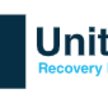Substance Abuse amd Co-occurring Mental Health Issues
Drug Rehab

Are you dealing with dual diagnosis? Learn how to manage addiction when you’re also battling with depression, anxiety, or another mental health issue.
Understanding the Connection Between Substance Abuse and Mental Health
When you have both a substance abuse issue and a mental health issue such as depression, anxiety, or bipolar disorder, it is called a co-occurring disease or dual diagnosis. Drug and alcohol treatment is never easy, and it’s even harder when you’re also struggling with mental health problems.
In co-occurring disorders, both the mental health problem and the drug or alcohol addiction have their own exceptional symptoms that may get in the way of your ability to function at work or school, maintain a proper home life, handle life’s difficulties, and relate to others. To make the situation more complicated, co-occurring disorders also influence each other. When a mental health problem goes unchecked, the substance abuse issue usually gets worse. And when alcohol or drug abuse rises, mental health problems usually increase too. But you’re not alone. Co-occurring drug abuse and mental health issues are more common than many may think. According to reports published in the Journal of the American Medical Association:
Roughly 50 percent of people with severe mental disorders are affected by substance abuse.
Thirty-seven percent of alcohol abusers and 53 percent of drug abusers also have at least one severe mental illness.
Of all individuals diagnosed as mentally ill, 29 percent abuse either alcohol or drugs.
While drug addiction and mental health problems don’t get better when they’re ignored—in fact, they could get much worse—it’s crucial to know that you don’t have to feel this way. You can do things to conquer your demons, repair your relationships, and get on the path to recovery. With the right support, self-help, and drug and alcohol treatment, you can tackle a co-occurring disorder, regain your sense of self, and get your life back on track.
Alcohol and drugs are often utilized in self-medicating the symptoms of mental health problems. Individuals often abuse alcohol or drugs to ease an undiagnosed mental disorder, cope with difficult emotions, or temporarily change their mood. Unfortunately, self-medicating causes side effects and, in the long run, often worsen the symptoms they initially helped to relieve.
Alcohol and drug abuse can increase the underlying risk for mental disorders. Mental disorders are caused by a complex interplay of genetics, the environment, and other outside factors. If you are at risk for a mental illness, abusing alcohol or illegal or prescription drugs may push you over the edge. There is some evidence, for example, that some abusers of marijuana have an increased risk of psychosis, while those who abuse opioid painkillers are at greater risk for depression. Drug and alcohol treatment in this case is vital before the situation escalates.






Comments
There are no comments for this story
Be the first to respond and start the conversation.